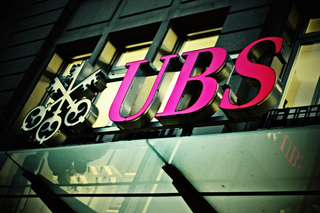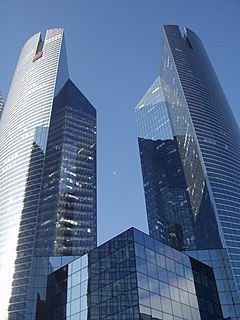
In finance, a derivative is a contract that derives its value from the performance of an underlying entity. This underlying entity can be an asset, index, or interest rate, and is often simply called the "underlying." Derivatives can be used for a number of purposes, including insuring against price movements (hedging), increasing exposure to price movements for speculation or getting access to otherwise hard-to-trade assets or markets. Some of the more common derivatives include forwards, futures, options, swaps, and variations of these such as synthetic collateralized debt obligations and credit default swaps. Most derivatives are traded over-the-counter (off-exchange) or on an exchange such as the New York Stock Exchange, while most insurance contracts have developed into a separate industry. In the United States, after the financial crisis of 2007–2009, there has been increased pressure to move derivatives to trade on exchanges. Derivatives are one of the three main categories of financial instruments, the other two being stocks and debt. The oldest example of a derivative in history, attested to by Aristotle, is thought to be a contract transaction of olives, entered into by ancient Greek philosopher Thales, who made a profit in the exchange. Bucket shops, outlawed a century ago, are a more recent historical example.
In finance, a put or put option is a stock market device which gives the owner the right, but not the obligation, to sell an asset, at a specified price, by a predetermined date to a given party. The purchase of a put option is interpreted as a negative sentiment about the future value of the underlying stock. The term "put" comes from the fact that the owner has the right to "put up for sale" the stock or index.
In finance, the style or family of an option is the class into which the option falls, usually defined by the dates on which the option may be exercised. The vast majority of options are either European or American (style) options. These options—as well as others where the payoff is calculated similarly—are referred to as "vanilla options". Options where the payoff is calculated differently are categorized as "exotic options". Exotic options can pose challenging problems in valuation and hedging.

In finance, a futures contract is a standardized forward contract, a legal agreement to buy or sell something at a predetermined price at a specified time in the future, between parties not known to each other. The asset transacted is usually a commodity or financial instrument. The predetermined price the parties agree to buy and sell the asset for is known as the forward price. The specified time in the future—which is when delivery and payment occur—is known as the delivery date. Because it is a function of an underlying asset, a futures contract is a derivative product.
In finance, an equity derivative is a class of derivatives whose value is at least partly derived from one or more underlying equity securities. Options and futures are by far the most common equity derivatives, however there are many other types of equity derivatives that are actively traded.
In mathematical finance, the Greeks are the quantities representing the sensitivity of the price of derivatives such as options to a change in underlying parameters on which the value of an instrument or portfolio of financial instruments is dependent. The name is used because the most common of these sensitivities are denoted by Greek letters. Collectively these have also been called the risk sensitivities, risk measures or hedge parameters.
In finance, moneyness is the relative position of the current price of an underlying asset with respect to the strike price of a derivative, most commonly a call option or a put option. Moneyness is firstly a three-fold classification: if the derivative would have positive intrinsic value if it were to expire today, it is said to be in the money; if it would be worthless if expiring at the current price it is said to be out of the money, and if the current price and strike price are equal, it is said to be at the money. There are two slightly different definitions, according to whether one uses the current price (spot) or future price (forward), specified as "at the money spot" or "at the money forward", etc.

A hedge is an investment position intended to offset potential losses or gains that may be incurred by a companion investment. A hedge can be constructed from many types of financial instruments, including stocks, exchange-traded funds, insurance, forward contracts, swaps, options, gambles, many types of over-the-counter and derivative products, and futures contracts.
In finance, a contract for difference (CFD) is a contract between two parties, typically described as "buyer" and "seller", stipulating that the seller will pay to the buyer the difference between the current value of an asset and its value at contract time.

Volatility smiles are implied volatility patterns that arise in pricing financial options. It corresponds to finding one single parameter that is needed to be modified for the Black-Scholes formula to fit market prices. In particular for a given expiration, options whose strike price differs substantially from the underlying asset's price command higher prices than what is suggested by standard option pricing models. These options are said to be either deep in-the-money or out-of-the-money.
In structured finance, a structured product, also known as a market-linked investment, is a pre-packaged investment strategy based on a single security, a basket of securities, options, indices, commodities, debt issuance or foreign currencies, and to a lesser extent, derivatives. The variety of products just described is demonstrative of the fact that there is no single, uniform definition of a structured product. A feature of some structured products is a "principal guarantee" function, which offers protection of principal if held to maturity. For example, an investor invests $100, the issuer simply invests in a risk-free bond that has sufficient interest to grow to $100 after the five-year period. This bond might cost $80 today and after five years it will grow to $100. With the leftover funds the issuer purchases the options and swaps needed to perform whatever the investment strategy calls for. Theoretically an investor can just do this themselves, but the cost and transaction volume requirements of many options and swaps are beyond many individual investors.

A stock trader or equity trader or share trader is a person or company involved in trading equity securities. Stock traders may be an agent, hedger, arbitrageur, speculator, stockbroker. Such equity trading in large publicly traded companies may be through one of the major stock exchanges, such as the New York Stock Exchange or the London Stock Exchange, which serve as managed auctions for stock trades. Stock shares in smaller public companies are bought and sold in over-the-counter (OTC) markets.
In finance, a stock market index future is a cash-settled futures contract on the value of a particular stock market index, such as the S&P 500. The turnover for the global market in exchange-traded equity index futures is notionally valued, for 2008, by the Bank for International Settlements at USD 130 trillion.
Rainbow option is a derivative exposed to two or more sources of uncertainty, as opposed to a simple option that is exposed to one source of uncertainty, such as the price of underlying asset.
Strategy indices are indices that track the performance of an algorithmic trading strategy. The algorithm clearly and transparently specifies all the actions that must be taken. The following are examples of algorithms that strategies can be based on.

The 2011 UBS rogue trader scandal caused a loss of over US$2 billion dollars at Swiss bank UBS, as a result of unauthorized trading performed by Kweku Adoboli, a director of the bank's Global Synthetic Equities Trading team in London in early September 2011.

Kweku Adoboli is a Ghanaian born investment manager and former stock trader. He was convicted of illegally trading away US$2 billion as a trader for Swiss investment bank UBS. While at the bank he primarily worked on UBS' Global Synthetic Equities Trading team in London where he engaged in what would later be known as the 2011 UBS rogue trader scandal. After serving a prison sentence, he lost several appeals against the Home Office decision to deport him to Ghana.









